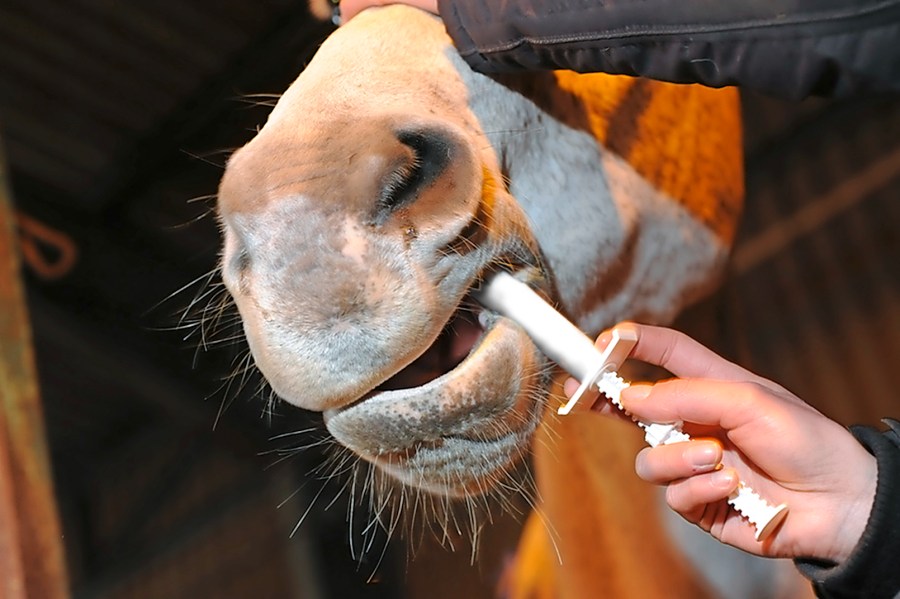Overworming your horse can lead to resistance, which means that in the future, wormers will become less effective at protecting your horse. What does this mean for the management of your horse?
A: Resistance is when a drug doesn’t work as well as it did when it was first used against specific population of worms.
The active ingredient in a horse wormer kills the sensitive parasites in the population, but those parasites not affected go on to create new generations of resistant parasites.
Frequent dosing or under-dosing can cause resistance to occur as can the effectiveness of the wormer.
Dosing correctly and only when necessary is the key to managing resistance in our horses.
Although there’s widespread resistance to some horse wormers, it’s not the same for all wormers and can vary greatly between yards.
If you’re worried about resistance to some horse wormers, the best way to ensure your wormers are working properly is to ask your vet to perform a test known as a faecal worm egg count before and two weeks after worming.
That way you can assess the level of worm eggs being shed in your horse’s faeces.









